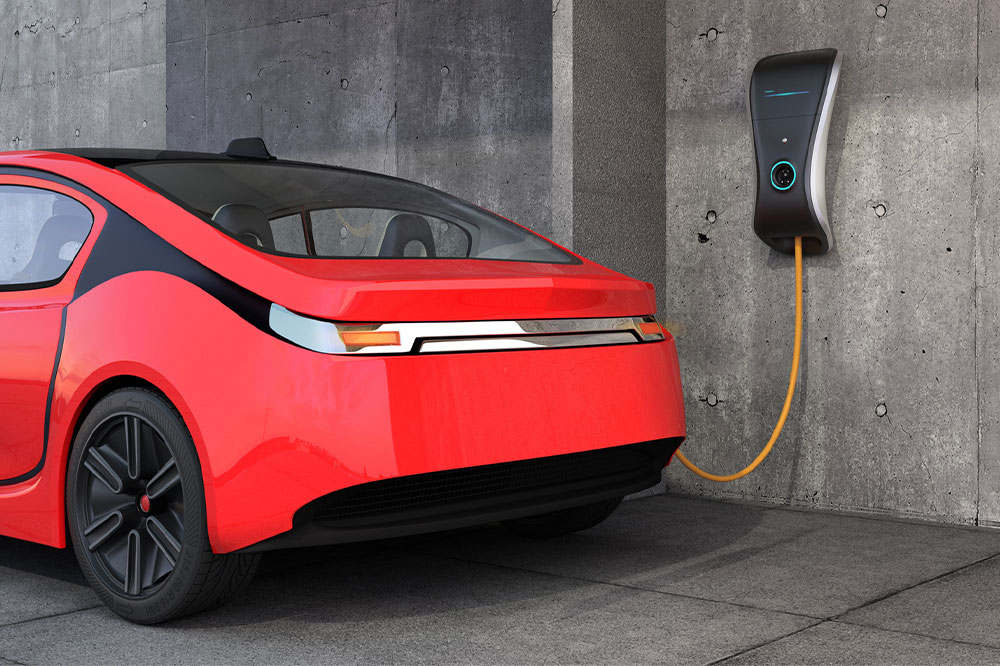5 Reasons That Make Electric Vehicles the Future of Cars

There has been an increasing demand for electric cars in recent years. Many analysts predict that these vehicles will become the transport solution for the future. According to global EV adoption trends, by 2030, approximately 40 percent of all new cars sold worldwide will be electric. By 2040, it is expected that all the cars sold will be electric. As a result, electric cars can reduce emissions and greatly impact the face of transportation entirely.
Benefits of Electric Vehicles
The absence of a conventional engine, and zero noise and vibration, makes the electric car an ideal transport vehicle. An electric car is powered by a bank of rechargeable batteries. These vehicles offer a range of financial, environmental, and performance benefits compared to internal combustion engine cars and are, therefore, the way of the future. Here are five ways electric cars are the future of global transportation:
Environmentally Friendly
One-fifth of global CO2 emissions are from transport vehicles. There is a need for eco-friendly transport, which makes electric cars the future of global transportation. An immense benefit of electric vehicles is that no emissions are produced, so there’s no environmental harm. Emissions from traditional internal-combustion engines cause climate change and air pollution. Moreover, these pollutants severely impact health and potentially cause serious conditions like cancer. In the case of electric cars, these vehicles use an electric motor that powers the batteries. The batteries are powered through a plug point, so no carbon dioxide is released as no fuel is burned. Even though in some parts of the world electricity is generated by burning fossil fuels, the carbon emissions are much lower than conventional cars. Electric cars also have a quiet operation, unlike combustion engines. They are vibration free and can help in reducing sound pollution as well.
Cost-effective Transportation
Electric cars run on batteries and is a more cost-effective mode of transportation than gasoline and fuel automobiles. While electric cars are expensive to buy up-front in the present day, they may prove to be a wise long-term investment. The batteries in electric cars don’t degrade over time and usually have a long battery life and will last for a decade or two before they need to be replaced. They can be charged easily at home and are still affordable, while fuel prices will continue to hike. Electric cars also have fewer parts which mean less wear and tear, resulting in fewer repairs and maintenance costs. According to a study, electric vehicle owners spend around 60 percent less annually compared to gas-powered car drivers. The same report states that electric vehicles also typically cost half the amount to maintain and repair compared to gas-powered cars.
Government Subsidies
Several government policies support the acceleration of the shift to sustainable mobility. These policies provide electric vehicle subsidies and grants to make battery technology cheaper and electric cars more affordable. Such steps are taken to ensure that there will be a mass increase in people switching to electric cars. France and the UK aim to ban conventional cars’ sale by 2040, addressing the concerns of toxic air pollution. In the UK, fully electric vehicles are exempt from road tax, and in several cities, there are zero or low-emission zones to discourage polluting vehicles from entering certain areas. However, countries like Italy, France, and Canada offer direct discounts when purchasing an electric vehicle. To make the electric switch, some governments are providing cash subsidies to consumers buying low-emission vehicles or reductions in taxes on electric vehicles.
Better Performance
Electric cars are high-performance vehicles and can accelerate much faster than combustion engines. They offer an enjoyable driving experience as the electric motor in the vehicle reacts quickly, making them responsive while delivering maximum torque simultaneously with no waiting times. The electric motor also gives instant access to power with no energy loss. On the other hand, a conventional car first burns fuel to create heat and then converts the heat into motion. The driving is smooth as you progress from first to sixth gear without jolts. Electric vehicles use intelligent regeneration to prevent energy loss. The motor slows the car down when you stop accelerating. This power is then returned to the battery, allowing increased driving range. Electric cars overall handling is better, too, as they have a low center of gravity with the heavy batteries mounted in the chassis.
Broad Range of Options
Earlier, there were only a few companies manufacturing electric cars, such as Tesla and General Motors, but now almost every car company has stepped into this arena. The number of upcoming electric cars is increasing yearly, making the market competitive. The electric cars unveiled nowadays have the best safety and luxury, so every consumer can find something to suit their taste and budget. Not only that, there is more choice of models and prices, including both purchase price and the cost to charge an electric car. The number of charge stations is also steadily increasing to give people the convenience of flexible charging. Consumers can charge their electric cars at home, at their workplace, or at a public charging station rather than waiting in a long queue at fuel stations. All 50 states of the US have been approved for EV charging stations covering 75000 miles of highway, ensuring Americans get the benefit of electric vehicles.
These reasons are enough to say why the transition to electric cars is inevitable. Electric vehicles will become the preferred choice for everyone soon. These vehicles are the new generation of travel and the future of global transportation. These improved options will provide cleaner streets and create a peaceful environment making a better place for people to live. Thanks to this innovation, air quality in cities will take a drastic change for the better.






